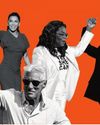
The Taiwanese hacker turned government minister was told at the age of four that she had a 50-50 chance of dying unless she had a major operation to fix a hole in her heart. Her doctor told her she could drop down dead at any moment if she got overexcited - and she had to wait eight more years for the op. This kind of news might bring out someone's selfish side - if your life is going to be so truncated, live for yourself. Not Tang, though. She was a tiny child with a whopping IQ and a precocious capacity to think. She decided she wanted to learn everything she could and share it with the world. At five, living with her family in Taipei, she started reading prodigiously - mainly classical Chinese literature. Huge tomes. Then she'd recount her own version of the stories to her classmates. "I liked storytelling. When I was seven I'd speak to the entire school about stories I'd learned from a book and retell them in a way I found more interesting." Did she realise she was super bright back then? She shakes her head. "No, I realised I was super ill."
By six, Tang was studying advanced mathematics; at eight she started writing code for video games, using pencil and paper because she didn't yet own a computer. And whatever she learned, it was with the intention of sharing her knowledge. Before long it became apparent she was a digital genius. Tang, 43, is roughly the same age as the internet (1 January 1983 is considered its birthday). She grew up alongside the world wide web; it was her playmate. In her teens, Tang believed the internet was there to bring her vision to fruition: to democratise knowledge, to make everything accessible, to make the world a better place. But then she saw it changing, being used to spread falsehoods and generate all-powerful companies that made digital capitalism's founding fathers unfeasibly rich while creating unimagined levels of inequality.
This story is from the {{IssueName}} edition of {{MagazineName}}.
Start your 7-day Magzter GOLD free trial to access thousands of curated premium stories, and 9,000+ magazines and newspapers.
Already a subscriber ? Sign In
This story is from the {{IssueName}} edition of {{MagazineName}}.
Start your 7-day Magzter GOLD free trial to access thousands of curated premium stories, and 9,000+ magazines and newspapers.
Already a subscriber? Sign In

Friendship interrupted
They were best mates. Then one had a baby, while the other struggled to conceive. They share their brutally honest takes on what happens when motherhood affects friendship

KERNELS OF HOPE
During the siege of Leningrad, botanists in charge of an irreplaceable seed collection, the first of its kind, had to protect it from fire, rodents-and hunger

A new horizon' The inverse link between cancer and dementia
Scientists have long been aware of a curious connection between these common and feared diseases. At last, a clearer picture is emerging

Across the universe
Samantha Harvey won the Booker prize with a novel set in space. Yet, she says, Orbital is actually 'a celebration of Earth's beauty with a pang of loss'

Frank Auerbach 1931 -2024
Saved from the Holocaust, this artist captured the devastation of postwar Britain as ifits wounds were his own but he ultimately found salvation in painting

Seven lessons I've learned after 28 years as economics editor
Margaret Thatcher was Britain's prime minister and Neil Kinnock was leader of the Labour party.

Droughtstricken dam leaves economies powerless
A ll is not well with the waters of Lake Kariba, the world's human-made lake largest A punishing drought has drained the huge reservoir close to record lows, raising the prospect that the Kariba Dam, which powers the economies of Zambia and Zimbabwe, may have to shut down for the first time in its 65-year history.

Let this be the end of these excruciating celebrity endorsements
I wish celebrities would learn the art of the French exit. But they can't, which is why Eva Longoria has announced she no longer lives in America. \"I get to escape and go somewhere,\" she explained.

Alive, but unable to thrive under absolute patriarchy
Since the Taliban returned to power, women and girls have tried defiance, but despair at their harshly restricted lives

‘It's tragic’ Reflection in the wake of Amsterdam violence
Carrying signs scrawled with messages urging unity, they laid white roses at the statue of Anne Frank, steps away from the home where her family had hidden from Nazi persecution.